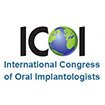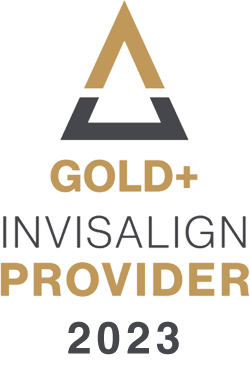Dental Implants — Thorndale, PA
The Premiere Tooth Replacement Option

Finding a good tooth replacement option after the loss of one, two, or many teeth is of the utmost importance. Missing teeth can cause a whole host of issues with your oral health, your overall health, your self-confidence, and your quality of life. Thankfully, dental implants in Thorndale with Dr. Mark Simeone can rebuild your smile good as new and replace your missing teeth with the next best thing! This state-of-the-art treatment is considered the premiere tooth replacement option by both patients and dentists alike. To learn more, keep reading and give us a call to schedule your dental implant consultation today!
Why Choose Chester County Dental Arts For Dental Implants?
- Entire Dental Implant Process Completed Under One Roof
- Permanently Replace Any Number of Missing Teeth
- Reasonable Prices & Flexible Payment Options
- Dr. Simeone has extensive dental implant education and experience treating many complex cases
Hear From One Of Our Patients
After breaking a front tooth, I selected Chester County Dental Arts to provide an implant because I was impressed with the people I met at my evaluation. Friendliness, knowledge and professionalism are the hallmarks of this practice. Dr. Simeone and everyone here makes me feel part of the family and I know that I am receiving top care. My new tooth looks great and I highly recommend this practice!
John D.
What Are Dental Implants?
 After tooth loss, the best way to replace the missing tooth is to account for each part that has been lost, which
includes both the visible crown and the roots hidden beneath the gumline. After all, you can’t provide a truly
effective solution by only fixing half the problem! Unfortunately, that’s exactly what other options such as
dental bridges and dentures do—they only replace missing teeth above the gumline and leave the roots missing.
After tooth loss, the best way to replace the missing tooth is to account for each part that has been lost, which
includes both the visible crown and the roots hidden beneath the gumline. After all, you can’t provide a truly
effective solution by only fixing half the problem! Unfortunately, that’s exactly what other options such as
dental bridges and dentures do—they only replace missing teeth above the gumline and leave the roots missing.
On the other hand, dental implants are held in place with an implant post that is inserted directly into the jawbone to mimic the roots of a natural tooth. Not only does this provide a stable foundation for the final restoration it supports, but it encourages circulation in the jawbone to keep it strong and healthy. Above your gumline, a beautiful, custom-made crown, bridge, or denture anchored in place by the implant(s) will blend in seamlessly with the rest of your pearly whites. Replacing missing teeth with dental implants gives you a smile that looks, feels, and functions just like natural!
The 4-Step Dental Implant Process
 Every dental implant treatment is tailored to meet the unique goals and
needs of each patient, so everyone’s journey towards rebuilding their smile will look slightly different.
However, there are four main steps every patient must go through to receive healthy, beautiful implants: initial
consultation, dental implant surgery, osseointegration and abutment placement, and receiving the final
restoration. Because no two patients are alike, you can expect Dr. Simeone and our team to personalize your
treatment based on your individual needs. Also, our ability to perform the entire dental implant process
personally and in-house will make for a more convenient and comfortable experience.
Every dental implant treatment is tailored to meet the unique goals and
needs of each patient, so everyone’s journey towards rebuilding their smile will look slightly different.
However, there are four main steps every patient must go through to receive healthy, beautiful implants: initial
consultation, dental implant surgery, osseointegration and abutment placement, and receiving the final
restoration. Because no two patients are alike, you can expect Dr. Simeone and our team to personalize your
treatment based on your individual needs. Also, our ability to perform the entire dental implant process
personally and in-house will make for a more convenient and comfortable experience.
While it is true that receiving dental implants does require patience and a commitment to the process, you’ll discover that the months and even year-long process, in some cases, are well worth the wait. If you’d like a better understanding of how dental implants work in Thorndale, review the information below and contact our dental office with any questions.
Initial Dental Implant Consultation

First, you’ll meet with Dr. Simeone to ensure that you’re a good candidate for dental implants. One of the great benefits of these permanent prosthetics is that they are a viable option for most adults suffering from tooth loss. If you are in good general oral and overall health, and you have enough jawbone, you will likely be given the green light to schedule your implant surgery. However, many patients will need to complete preliminary treatments such as bone grafting or periodontal therapy before beginning dental implant treatment.
Dental Implant Surgery

Next, the implants need to be placed. Fortunately, you will not need to receive a referral to see an outside specialist. Instead, we will perform the entire procedure in-house, allowing you to be much more comfortable. Before your implant dentist in Thorndale begins, you will receive local anesthesia to ensure you are pain-free throughout the procedure. We’ll then make one or more incisions in your gums (depending on how many dental implants you’re getting). Once we’ve accessed your jawbone, we’ll position the implant posts in place, close the gums around them, and place protective caps over the post.
Dental Implant Osseointegration/Abutment

Over the next four to six months, the dental implant posts will fuse with the surrounding bone tissue in a process called osseointegration to essentially become a part of your jaw. During this time, you will need to follow specific instructions to ensure that your mouth fully heals. Some minor soreness and discomfort are normal but will dissipate over time. You will then come back to our dental office to have small connector pieces called abutments attached to the top of your dental implants in Thorndale.
Delivery of Dental Implant Restorations

Lastly, you’ll return to our dental office to have your custom crown, bridge, or denture fastened into place. Because of the materials used, you can trust that your customized restoration will look and feel completely natural. Blending in with your remaining smile, you’ll feel much more confident in your appearance once this final stage of treatment is finished. We’ll check that your bite is comfortable, then you’ll be ready to go out and show off your newly completed smile.
Benefits of Dental Implants

Every smile should last a lifetime, but most people will lose one or more teeth at some point in their lives. With dental implants, though, all hope is not lost. Partnering with Dr. Simeone at Chester County Dental Arts for this comprehensive tooth replacement will help to ensure that you can enjoy a complete, healthy smile for a lifetime to come! With more than 3 million people enjoying the great benefits of dental implants in Thorndale, we encourage you to keep reading to learn about these unique prosthetics and call us with any questions you might have along the way.
Day-to-Day Benefits

- Eat a Nutritious Diet & All Your Favorite Foods: People who are stuck with an ill-fitting tooth replacement are often forced to limit their diets to only the soft foods they can easily eat. This can cause nutrition to suffer as a result. With dental implants, however, you are able to consume a wide variety of fresh and nutritious foods that help you look and feel great.
- Preserve What Nature Intended: Dental implants have been called “nature’s rival” in tooth replacement because they mimic the original tooth structure so well. By choosing this tooth replacement, you are setting yourself up for a prosthetic that looks and functions as well as your remaining teeth.
- Practice Easy Maintenance: Because dental implants mimic your natural tooth structure, you won’t have to learn any special techniques to keep them clean. Simply brush your teeth for two minutes, twice a day, floss daily, and continue to enjoy wonderful dental health.
- Enjoy a Youthful Appearance: Because a dental implant replaces a missing tooth’s root in addition to the visible crown, your jawbone receives the nutrients it needs to stay healthy and whole even after the original root has been lost. This whole-tooth replacement keeps the mouth from losing volume and adding years to your appearance. With dental implants, you can look exactly your age -- or younger!
Health Benefits

- Keep Your Remaining Natural Teeth in Place: Dental implants will help you keep your natural teeth firmly in place by promoting good oral health for the rest of your life. The implant posts prevent the degeneration of bone that is common after tooth loss, greatly reducing the risk that you will lose more teeth later on.
- Avoid Altering Regular Teeth: Dental bridges require that you use healthy adjacent teeth as anchors for your prosthetic; however, by allowing a trusted implant dentist in Thorndale to use dental implants, there is no need to bother your existing healthy teeth.
- Enjoy Improved Overall Health: Shorter lifespans are not uncommon for people over the age of 65 with 5 or more missing teeth. Tooth loss closely relates to many of the most common systemic issues (i.e., heart disease, diabetes, osteoporosis, and more). By replacing yours with dental implants, you can enjoy better overall health for years to come.
Long-Term Benefits

- High Success Rate: Dental implants are known to have a success rate of 95% after 10 years!
- Smile for Decades to Come: Dental implants in Thorndale may seem like an expensive option in tooth replacement, but unlike dentures and dental bridges that need to be replaced every 5-10 years, with proper care and maintenance, dental implants can last for decades.
- Save Money Well Into the Future: Forget about replacements or adjustments to keep up with your diminishing jawbone -- dental implants can stay sturdy and secure for far longer than any other option in tooth replacement! Also, you’ll never need to buy adhesives or special cleaning supplies!
Who Dental Implants Can Help
 Dental implants have dramatically risen in popularity over the past
few decades, and it’s easy to see why. This unique tooth loss solution is comfortable, natural-looking,
and can last for a lifetime with proper care and maintenance. Dental implants are highly successful in eligible
candidates, with a 98% success rate even 10 years after placement. What’s more, dental implants can
address any level of tooth loss, no matter how many teeth you’re missing, and most healthy adults made
great candidates for this procedure.
Dental implants have dramatically risen in popularity over the past
few decades, and it’s easy to see why. This unique tooth loss solution is comfortable, natural-looking,
and can last for a lifetime with proper care and maintenance. Dental implants are highly successful in eligible
candidates, with a 98% success rate even 10 years after placement. What’s more, dental implants can
address any level of tooth loss, no matter how many teeth you’re missing, and most healthy adults made
great candidates for this procedure.
Missing 1 Tooth
 When it comes to tooth replacement, dentistry’s
standards have made dramatic changes over the past several decades. Instead of only solving the issue of
gaps in your smile, like how a traditional bridge would, dental implants work to replace the
tooth’s entire structure. This means they act as a 2-in-1 solution, not a half-measure. This makes
dental implants the best long-term solution to missing teeth in dentistry to date. If you’re
eligible for dental implants, our dentists strongly recommend them for treatment as they provide many
decades of reliable use.
When it comes to tooth replacement, dentistry’s
standards have made dramatic changes over the past several decades. Instead of only solving the issue of
gaps in your smile, like how a traditional bridge would, dental implants work to replace the
tooth’s entire structure. This means they act as a 2-in-1 solution, not a half-measure. This makes
dental implants the best long-term solution to missing teeth in dentistry to date. If you’re
eligible for dental implants, our dentists strongly recommend them for treatment as they provide many
decades of reliable use.
Missing Multiple Teeth
 If you’ve lost two or more
teeth in a row, we may recommend a dental implant-supported fixed bridge. These implant bridges allow us
to anchor a row of fused together replacement teeth to two dental implant posts, one at each end. This
fills a gap in your smile without adversely impacting the surrounding healthy teeth. Traditional dental
bridges require the removal of healthy dental structure from the teeth on either side of the lost tooth
or teeth, so the bridge can be anchored in place. Implant bridges offer a much more conservative
solution that maintains all healthy oral structures.
If you’ve lost two or more
teeth in a row, we may recommend a dental implant-supported fixed bridge. These implant bridges allow us
to anchor a row of fused together replacement teeth to two dental implant posts, one at each end. This
fills a gap in your smile without adversely impacting the surrounding healthy teeth. Traditional dental
bridges require the removal of healthy dental structure from the teeth on either side of the lost tooth
or teeth, so the bridge can be anchored in place. Implant bridges offer a much more conservative
solution that maintains all healthy oral structures.
Missing All Teeth
 Many patients who have traditional dentures are unable to ever
find a proper fit for their prosthetic teeth. Unfortunately, loose dentures can result in oral sores as
well as significant stress and frustration over teeth that may slip or slide around while you are eating
or speaking. Fortunately, dental implants can retain a full denture to help you smile with full
confidence. You will not need an individual implant post placed for each missing tooth. Rather, several
strategically-placed dental implants can be used to retain the prosthetic teeth. Implant dentures can be
fixed or removable and sometimes, your dentist can use dental implants to secure the denture you already
have.
Many patients who have traditional dentures are unable to ever
find a proper fit for their prosthetic teeth. Unfortunately, loose dentures can result in oral sores as
well as significant stress and frustration over teeth that may slip or slide around while you are eating
or speaking. Fortunately, dental implants can retain a full denture to help you smile with full
confidence. You will not need an individual implant post placed for each missing tooth. Rather, several
strategically-placed dental implants can be used to retain the prosthetic teeth. Implant dentures can be
fixed or removable and sometimes, your dentist can use dental implants to secure the denture you already
have.
Understanding the Cost of Dental Implants
 The cost of dental implants in
Thorndale will depend on factors including how healthy your jawbone is, how many teeth you have lost, and
where in the jaw the implants will be placed. If you need to have a bone graft performed before dental implant
placement, the cost of the procedure adds to the total price. Additionally, teeth in the front of the mouth may
be more expensive to replace than those in the back given the fact that the procedure is more delicate for the
former. The only way to know for sure how much your dental implant procedure will cost is to schedule an
appointment with your implant dentist.
The cost of dental implants in
Thorndale will depend on factors including how healthy your jawbone is, how many teeth you have lost, and
where in the jaw the implants will be placed. If you need to have a bone graft performed before dental implant
placement, the cost of the procedure adds to the total price. Additionally, teeth in the front of the mouth may
be more expensive to replace than those in the back given the fact that the procedure is more delicate for the
former. The only way to know for sure how much your dental implant procedure will cost is to schedule an
appointment with your implant dentist.
Dental implant procedures cost more than other options in tooth replacement, but they are well worth the investment. In fact, you may even end up saving money in the long run given the fact that dental implants do not require replacing and can keep the prosthetic teeth functioning better for longer than non-implant-retained options. Traditional dentures, for example, require replacement every five to seven years. Over time, the cost of each replacement really adds up.
Preliminary Treatments & Dental Implant Surgery

Your initial consultation with Dr. Simeone will include discussing whether you need preliminary treatment in the form of bone grafting, periodontal therapy, or even tooth extraction. Should you be required to undergo one or all these procedures, you can expect them to be added to the total cost of your treatment.
Additionally, your dental implant surgery will incur its own fee. Fortunately, because the entire procedure is performed in-house, you won’t need to worry about paying a separate fee to a different implant dentist in Thorndale. Your complete bill will be housed in one location.
The Parts of Your Dental Implant

The parts of your dental implant are also factored into the overall cost of your care:
- How many implants you will need – Replacing a single tooth is much less expensive than an entire arch; however, when you compare traditional dentures to those attached to dental implants, the more permanent solution is much more cost-effective.
- The materials used – Because titanium and zirconia fuse to bone so well, they are the two most common materials used for dental implants.
- The type of restoration – Dental implants in Thorndale are highly versatile, so you can receive an implant crown, bridge, or denture.
- The brand – Numerous manufacturers offer customized dental implants. We will review the various providers and the materials and technologies they use. Our team will partner with you to find the right dental implant at the right price for your unique oral health care needs.
How Dental Implants Can Save You Money

As you consider all your available options, you may begin to think traditional dentures or a dental bridge is more affordable. While you would be right with regard to the upfront costs, the reality is that over time, dental implants will save you more money in the long run. Not only will you not need to buy denture adhesive to keep your prosthetic in place, but you won’t need any special cleaning supplies or frequent adjustments and replacements. Dental implants are designed to last 30 years or more with regular care! Also, by replacing your missing teeth with these permanent prosthetics, you can reduce your risk of developing osteoporosis, diabetes, and heart disease, which are common health conditions that are linked to tooth loss.
Does My Dental Insurance Cover Dental Implants?

In most cases, dental insurance still doesn’t provide coverage for dental implants or their surgical placement. However, we will help you to make the most of your dental benefits for other aspects of your treatment plan, including preparatory procedures and replacement teeth.
Making Dental Implants Affordable

During your tooth replacement consultation and treatment planning appointment, we will work with you to plan for the costs of dental care. That starts with our team carefully explaining the out-of-pocket pricing for each step of the process – preparation, implant placement, abutment attachment and restoration design, and the connection of the replacement tooth or teeth. We can explain how much each of your treatment steps will cost. We will also work with patients to receive low and no interest financing through CareCredit, Lending Point, or Lending Club to spread the costs of their dental implant tooth replacement plan over several months.
Maintaining & Caring for Your Dental Implants
 After getting dental implants, you’ll want to get the most out of
your investment by taking great care of them. With the right maintenance, not only will they continue to look
great, but they can easily last a lifetime. After your procedure, we’ll provide you with some simple
instructions regarding dental implant care in Thorndale so you can enjoy them for decades to come.
After getting dental implants, you’ll want to get the most out of
your investment by taking great care of them. With the right maintenance, not only will they continue to look
great, but they can easily last a lifetime. After your procedure, we’ll provide you with some simple
instructions regarding dental implant care in Thorndale so you can enjoy them for decades to come.
Make Oral Hygiene a Priority
 Just like with your home-grown pearly whites, it’s
important to establish a thorough oral hygiene routine to regularly clear plaque and tartar from your
teeth and gumline. Even though your replacement teeth can’t get cavities, your gums and mouth can still
become overrun with bacteria and cause infections to develop. This could result in implant failure,
ruining the smile that you’ve worked so hard to obtain. To keep this from happening, it’s important to
continue brushing at least twice each day, flossing every day, and rinsing with antimicrobial mouthwash
regularly.
Just like with your home-grown pearly whites, it’s
important to establish a thorough oral hygiene routine to regularly clear plaque and tartar from your
teeth and gumline. Even though your replacement teeth can’t get cavities, your gums and mouth can still
become overrun with bacteria and cause infections to develop. This could result in implant failure,
ruining the smile that you’ve worked so hard to obtain. To keep this from happening, it’s important to
continue brushing at least twice each day, flossing every day, and rinsing with antimicrobial mouthwash
regularly.
Eating a Healthy Diet
 Healthy foods can make a big difference when it comes to
maintaining your weight. But they can also help you enjoy a healthier, more beautiful smile. Even with
dental implants in Thorndale, it’s important that you incorporate fruits, vegetables, leafy greens,
lean proteins, and various foods full of calcium and Vitamin C. These will not only strengthen regular
tooth enamel, but they’ll also improve gum health, which can help reduce your risk for gum disease. Just
be mindful of how much sugar and starch you are consuming, as they are known to cause bacterial growth
that can lead to decay and serious infections.
Healthy foods can make a big difference when it comes to
maintaining your weight. But they can also help you enjoy a healthier, more beautiful smile. Even with
dental implants in Thorndale, it’s important that you incorporate fruits, vegetables, leafy greens,
lean proteins, and various foods full of calcium and Vitamin C. These will not only strengthen regular
tooth enamel, but they’ll also improve gum health, which can help reduce your risk for gum disease. Just
be mindful of how much sugar and starch you are consuming, as they are known to cause bacterial growth
that can lead to decay and serious infections.
Breaking Bad Habits
 If you know you have bad oral habits such as nail-biting,
teeth grinding, or smoking, then it’s a good idea to try to quit them or protect your smile before your
new dental implants are placed. Teeth grinding can be addressed with our custom-crafted nightguards to
help reduce the impact of nightly clenching. However, you’ll need to make a conscious effort to curb or
quit smoking or biting your nails. These can both increase your risk of infection and dental implant
failure.
If you know you have bad oral habits such as nail-biting,
teeth grinding, or smoking, then it’s a good idea to try to quit them or protect your smile before your
new dental implants are placed. Teeth grinding can be addressed with our custom-crafted nightguards to
help reduce the impact of nightly clenching. However, you’ll need to make a conscious effort to curb or
quit smoking or biting your nails. These can both increase your risk of infection and dental implant
failure.
Protecting Your Dental Implants
 A customized mouthguard is a great investment, especially
if you enjoy playing sports or tend to grind your teeth at night while sleeping. These unique oral
appliances fit over your upper teeth and absorb any sudden pressure that might harm your pearly whites
or soft oral tissues. Instead of rushing to the emergency dental office for immediate care, you can
enjoy greater peace of mind knowing your real and artificial teeth are safer with the help of these
customized mouthguards.
A customized mouthguard is a great investment, especially
if you enjoy playing sports or tend to grind your teeth at night while sleeping. These unique oral
appliances fit over your upper teeth and absorb any sudden pressure that might harm your pearly whites
or soft oral tissues. Instead of rushing to the emergency dental office for immediate care, you can
enjoy greater peace of mind knowing your real and artificial teeth are safer with the help of these
customized mouthguards.
Scheduling Regular Dental Checkups
 One of the best ways to avoid any issues developing with
your new dental implants is to schedule semi-annual checkups and cleanings, just like you normally
would. This will allow your implant dentist in Thorndale to inspect your mouth and ward off any
lingering threats of oral health problems. Plus, if we do spot an issue developing, we’ll be able to
quickly treat it and keep it from causing additional damage to your implants.
One of the best ways to avoid any issues developing with
your new dental implants is to schedule semi-annual checkups and cleanings, just like you normally
would. This will allow your implant dentist in Thorndale to inspect your mouth and ward off any
lingering threats of oral health problems. Plus, if we do spot an issue developing, we’ll be able to
quickly treat it and keep it from causing additional damage to your implants.
Dental Implant Failure & Salvage

A failed dental implant in Thorndale is often the result of poor oral hygiene or failed osseointegration. Although this is unlikely to happen because of the high level of success when placed, it can, and you should have a trusted dentist who can help. Using his expertise, Dr. Simeone can implement dental implant salvage to repair your problem tooth and get your smile back on track.
Dental Implant Technology

Dr. Mark Simeone is committed to providing his patients with the latest and greatest dental implant technology in Thorndale. When it comes to placing dental implants, he uses a 3D Cone Beam Scanner as well as a custom-made guide that ensures surgery is swift, comfortable, and produces successful results. By adopting these technologies and incorporating them into his dental practice, he can deliver exceptional care to patients looking to restore their smiles in a permanent way.
3D Cone Beam Imaging/3D CT Scanning

Using a 3D Cone Beam Scanner, your dental implant dentist in Thorndale will position your face and head to allow for the device to take a 360-degree scan of your oral and facial structures. Taking hundreds of high-resolution images, Dr. Simeone will be able to view the tissues, teeth, jawbone, gums, sinuses, and nerves throughout your face. The photos taken will combine to create a single three-dimensional image that allows for a thorough examination in preparation for a comprehensive treatment plan.
By evaluating the status of your oral and facial structures with the help of our 3D Cone Beam Scanner, he can determine the density of your bone and whether you will require preliminary treatment before receiving your dental implants (i.e., bone grafting, sinus lift).
Guided Dental Implant Surgery

In combination with the 3D Cone Beam Scanner, Dr. Simeone also uses guided dental implant surgery. This high-tech, advanced method of care uses the 3D image retrieved by the CT Scanner as well as specialized software to create a guide for dental implant placement. This unique device allows our team to identify the exact locations for the dental implants in Thorndale, ensuring both the depth and placement offer maximum stability and support.
Once the guide is printed, it is placed within your mouth on the day of surgery, making the procedure smoother and more seamless.
Dental Implants Frequently Asked Questions

Without a doubt, dental implants in Thorndale are a remarkable form of tooth replacement. Our team wants as many people as possible to take advantage of them. Before you schedule your consultation with us, however, it is understandable if you want to learn more about the road ahead. Below, we provide the answers to some frequently asked questions about this treatment. If you don’t see the information you were specifically hoping to find, please reach out to us directly. We look forward to speaking with you!
How Long Do Dental Implants Last?
Dental implants are designed to last a lifetime. For many patients, they last for well over 30 years without any complications — far longer than non-implant forms of tooth replacement. Of course, every case is different. Your overall health and lifestyle choices will play a role in how your implants fare over the long-term. If you stick to a good oral hygiene routine, attend regular dental checkups, and protect your implants from physical trauma, you can expect your new tooth roots to stand the test of time. The restorations on top of dental implants are also quite durable and tend to last for a decade or longer.
Does Getting Dental Implants Hurt?
You should feel little to nothing during the implant placement surgery. Your implant dentist in Thorndale will make sure your mouth is numbed, and you might even be sedated. After the surgery, some swelling and general discomfort are normal. These may last for a few days, or up to a week or longer. Taking pain medications, using a cold compress to manage swelling, and getting plenty of rest can help you get back to feeling like yourself as soon as possible. If you experience any severe or unusual side effects after your surgery, call us right away.
How Long Does It Take to Recover from Dental Implant Surgery?
Sedation usually wears off within 24 hours of when it is administered (nitrous oxide wears off much quicker). Most patients are able to return to work within a day or two after their surgery. However, you might need to take more time off if your job involves strenuous physical activity; it’s best to take it easy for at least a week or so. Bleeding and swelling usually disappear within 3 – 4 days after the procedure. After your soft tissue recovers, your bone will continue to heal; it might take up to six months for the implants to bond with your jaw.
What Can Cause Dental Implants to Fail?
The most common cause of dental implant failure is peri-implantitis, an infection that attacks the tissue around an implant. It can be caused by poor oral hygiene and worsened by things like smoking or a compromised immune system. Another possible reason for implant failure is unsuccessful osseointegration (the implant never bonds properly with the surrounding bone).
Keep in mind that implant failure is quite rare, and we thoroughly consider all risk factors before we approve a patient to move ahead with their implant surgery. The vast majority of patients never have to worry about something going wrong with their restored smile.
Dental Implant Post-Op Instructions

Dental implant post-op instructions in Thorndale are provided by Dr. Simeone once you are finished with your oral surgery. These are necessary steps you must take if you want to ensure the successful fusing and placement of your new teeth. Although dental implants are capable of giving you greater freedom when it comes to eating the foods you love and speaking with ultimate clarity, you must first complete the recovery process using the following tips. Only then can you expect to enjoy a healthy, beautiful smile that lasts a lifetime.
Contact the Dental Implant Experts Today!
 If you are interested in learning even more about this comprehensive
tooth replacement, you are invited to get in touch with the team here at Chester County Dental Arts! We believe
everyone deserves to enjoy all the benefits of a complete, healthy smile. Even if you are not eligible for
dental implants, our team of experts will identify and provide the right solution for your specific smile needs.
To get started discussing your options in high-quality tooth replacement, please do not hesitate to get in touch with our dental office today!
If you are interested in learning even more about this comprehensive
tooth replacement, you are invited to get in touch with the team here at Chester County Dental Arts! We believe
everyone deserves to enjoy all the benefits of a complete, healthy smile. Even if you are not eligible for
dental implants, our team of experts will identify and provide the right solution for your specific smile needs.
To get started discussing your options in high-quality tooth replacement, please do not hesitate to get in touch with our dental office today!
What to Do Directly After Dental Implant Surgery

Immediately following your dental implant procedure, you must make sure you have someone escort you home, as it will take time for the anesthesia to wear off. You can expect to spend the remainder of your day resting. You will notice, however, as the medication wears off that soreness and swelling will occur, as will some minor bleeding. You can use clean gauze to manage the bleeding and take an over-the-counter pain reliever (or doctor-prescribed medication) to relieve discomfort.
You will also need to make sure you do not use a straw or smoke for at least 24 hours. This can dislodge your blood clots and make healing much more difficult.
Common Side Effects

Oral surgery often results in various side effects. Some of the most common ones you can expect include minor bleeding, slight swelling, and soreness. Your implant dentist in Doylestown does not want you to be alarmed, as this is all part of the healing process. Swelling should not last longer than a week, and bleeding should only occur for a few days. If you notice that your pain increases over time, make sure to call our dental office immediately.
Diet

Eating a liquid and soft food diet during these initial months will make a drastic difference in the efficiency of your recovery. Hard and crunchy foods should be avoided as well as solid foods (at least for the first few months). However, there are many appropriate options you can consume that are rich in nutrients and won’t place additional pressure on your healing implants, bone, and tissues. These include:
- Pasta
- Scrambled eggs
- Yogurt
- Ice cream
- Pudding
- Warm soups
- Mashed potatoes
- And more!
Health & Oral Hygiene

Taking care of your teeth and gums during your recovery is essential. Although you may not feel as if you should be brushing and flossing, it is necessary if you want to avoid the potential for an infection that can lead to dental implant failure. The day after your surgery, you can expect to clean your teeth like normal, just be mindful when navigating your surgical sites. You can also rinse your mouth 2-3 times a day with warm salt water or a prescription mouthwash provided by Dr. Simeone.
What to Do After Your New Teeth Are Attached

Once your dental implants in Thorndale are finally attached, you can begin to enjoy your new smile! Some sensitivity of your gums may occur but should not last long. You don’t need to expect any swelling, bleeding, or soreness but instead, a full, complete, and functional smile you can be proud to show off to the world!
Dental Implant FAQs
Without a doubt, dental implants in Coatesville are a remarkable form of tooth replacement. Our team wants as many people as possible to take advantage of them. Before you schedule your consultation with us, however, it is understandable if you want to learn more about the road ahead. Below, we provide the answers to some frequently asked questions about this treatment. If you don’t see the information you were specifically hoping to find, please reach out to us directly. We look forward to speaking with you!
How Long Do Dental Implants Last?
Dental implants are designed to last a lifetime. For many patients, they last for well over 30 years without any complications — far longer than non-implant forms of tooth replacement. Of course, every case is different. Your overall health and lifestyle choices will play a role in how your implants fare over the long term. If you stick to a good oral hygiene routine, attend regular dental checkups, and protect your implants from physical trauma, you can expect your new tooth roots to stand the test of time. The restorations on top of dental implants are also quite durable and tend to last for a decade or longer.
Does Getting Dental Implants Hurt?
You should feel little to nothing during the implant placement surgery. Your implant dentist in Coatesville will make sure your mouth is numbed, and you might even be sedated. After the surgery, some swelling and general discomfort are normal. These may last for a few days, or up to a week or longer. Taking pain medications, using a cold compress to manage swelling, and getting plenty of rest can help you get back to feeling like yourself as soon as possible. If you experience any severe or unusual side effects after your surgery, call us right away.
How Long Does It Take to Recover from Dental Implant Surgery?
Sedation usually wears off within 24 hours of when it is administered (nitrous oxide wears off much quicker). Most patients can return to work within a day or two after their surgery. However, you might need to take more time off if your job involves strenuous physical activity; it’s best to take it easy for at least a week or so. Bleeding and swelling usually disappear within 3 – 4 days after the procedure. After your soft tissue recovers, your bone will continue to heal; it might take up to six months for the implants to bond with your jaw.
What Can Cause Dental Implants to Fail?
The most common cause of dental implant failure is peri-implantitis, an infection that attacks the tissue around an implant. It can be caused by poor oral hygiene and worsened by things like smoking or a compromised immune system. Another possible reason for implant failure is unsuccessful osseointegration (the implant never bonds properly with the surrounding bone).
Keep in mind that implant failure is quite rare, and we thoroughly consider all risk factors before we approve a patient to move ahead with their implant surgery. The vast majority of patients never have to worry about something going wrong with their restored smile.
How Successful Are Dental Implants?
So long as you undergo the procedure with the help of a skilled professional, your treatment can typically have a success rate of well over 95%, even 10 years after your dental implants are placed. Not only will the titanium posts be biocompatible and able to function like natural teeth, but they can also remain in your jawbone indefinitely. Of course, the success rate of your treatment will mostly depend on how well you take care of the results, such as practicing great oral hygiene, visiting your dentist every six months for checkups, and keeping a healthy diet. Where the dental implant is located in your mouth can also impact the success, as molars tend to experience more wear and tear from chewing compared to front teeth.
Am I Too Young to Get Dental Implants?
Those who are eligible for dental implant treatment usually have missing teeth and have fully matured jawbones. In many cases, people’s jaws won’t develop completely until they become young adults. Should dental implants be placed before jawbone maturity, they can end up interfering with the development of the bone, which can lead to future complications. For this reason, implant dentists will generally not place dental implants in patients who are younger than 18 years old, as some may not have fully matured jaws until their mid-20s. On the other hand, there is no upper age limit for getting dental implants. Furthermore, men’s jawbones typically take longer to mature than women’s.
How Long Does Dental Implant Surgery Take?
This will usually depend on the number of dental implants that you need to receive. In most cases, placing a single dental implant can take around one to two hours to complete. This can include the time it takes to administer anesthesia and sedation, to prepare you for a sterile surgical environment, and to embed the titanium posts into your jawbone. Of course, the more dental implants you need, the longer your appointment.
Will I Have to Take Off Work for Dental Implant Surgery?
For the most part, patients might only take one or two days off of work to undergo dental implant surgery. If this is the case, then you might consider taking off Thursday, Friday, or both so that you can have the rest of the weekend to get lots of sleep. Every situation is different and some patients may need to have more days off depending on their unique needs. For example, those who require preliminary services, such as bone grafting or tooth extractions, might need to take more time off. People with more strenuous or physically demanding jobs may require a few more days off work, as excessive activity can divert blood from the surgical site and hinder recovery.
Mary H.
Mary had been unhappy with her smile for many years. By using dental implants with an ‘All on 4’ approach on Mary’s upper teeth, we were able to place the teeth where they look best and control where the gumline is, restoring proper symmetry, form, and function all while improving esthetics. Who would have thought gum tissue with an All on 4 could look so natural!? Congratulations Mary on your new smile!

Stephen B.
Stephen came to us as he needed several dental procedures done. Fortunately, Dr. Simeone was able to provide everything they needed in-house which saved Stephen tons of time. First, all of his remaining teeth were removed, and then four dental implants were placed into the upper and lower jaws. These were then topped with Bruxzir retained bridges, and the difference is night and day. While the aesthetics definitely stand out, the biggest difference for the patient came down to their ability to eat whatever he wanted again! Congratulations Stephen!










